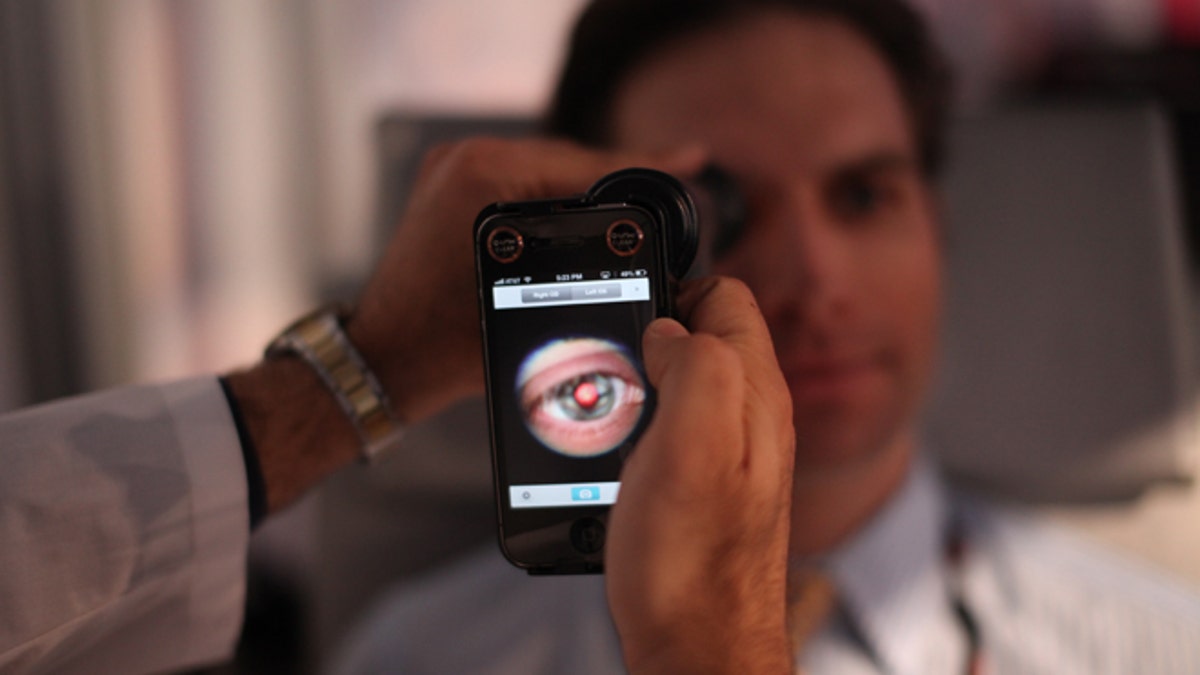
This image provided by TEDMED, shows a medical student preparing to photograph the inside of someone's eye using a special tool that taps a smartphoneâs camera during a recent TEDMED conference in Washington. Companies are developing a variety of miniature medical tools that hook onto smartphones to provide almost a complete physical. The hope is that this mobile medicine will help doctors care for patients in new ways, and also help people better monitor their own health. (AP Photo/TEDMED) (AP2013)
RIO DE JANEIRO – Favela slums on the hillsides of Rio de Janeiro have found their own way to make health care more affordable – and mobile.
Using mobile health technology to monitor patients in poor urban areas could improve residents' access to health care while also reducing health care spending, a study conducted in a Rio de Janeiro suggested Wednesday.
The study, by the New Cities Foundation, looked at the effects of bringing state-of-the-art health care diagnostic tools to sick and elderly residents of Rio's Dona Marta favela, an underserved shantytown up a steep hill from most conventional health care services.
Under the foundation's 18-month Urban E-Health Project, staff at a clinic in the slum was provided with a backpack with nine portable diagnostic tools to track blood pressure, glucose levels and other health measurements during weekly house calls on 100 elderly patients with chronic diseases and reduced mobility.
The kit, which contained tools including a pocket-sized ultrasound unit and a meter to measure blood oxygenation and heart rate, allowed the staff to provide fast and accurate on-site tests that led to improved treatment of high blood pressure, diabetes and other ailments.
"Equipped with the backpack, clinic staff could walk up the community's narrow streets and perform in-house visits and detect up to twenty different diseases within minutes," the foundation said in a statement.
Such quick, easy diagnoses were shown to help prevent more serious health problems down the line, cutting down on instances of heart failure, strokes and other ailments, it said.
The mobile treatment also led to hundreds of thousands of dollars' worth of savings to Brazil's public health system by helping prevent serious ailments requiring costly treatment, the statement added.
The organization said such mobile treatments could have similarly positive effects in underserved urban communities around the globe.
"We should not wait for this kind of innovation to slowly trickle down to the bottom of the pyramid," the foundation's executive director, Mathieu Lefevre, said in the statement. "This study shows that we can and should start where better access to health care is needed most and we should do so by using the best available technology."
Based on reporting by the Associated Press.
Follow us on twitter.com/foxnewslatino
Like us at facebook.com/foxnewslatino
